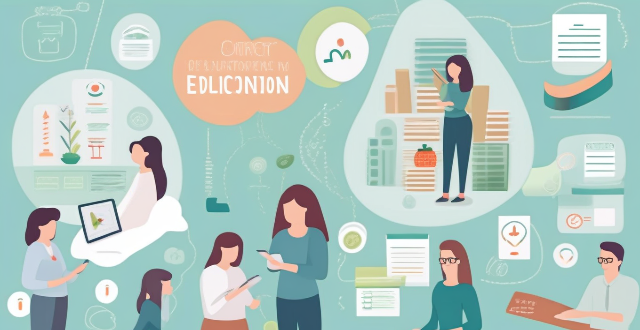Scientific literacy is crucial for personal development and education, enabling individuals to engage with their surroundings. For women, achieving scientific literacy can be influenced by various factors such as educational opportunities, cultural and societal norms, support systems and resources, workplace environment, policy and legislation, community and media representation, and personal development and self-advocacy. Addressing these key factors can empower women with the scientific knowledge needed to thrive in an increasingly technological world.

Key Factors that Contribute to Women's Scientific Literacy
Scientific literacy is a crucial component of education and personal development, enabling individuals to understand and engage with the world around them. For women, achieving scientific literacy can be influenced by various factors. Here are some key elements that contribute significantly:
Educational Opportunities
- Access to Education: Equal access to quality education from primary through tertiary levels is fundamental.
- Curriculum Inclusivity: A curriculum that includes science and encourages female students to take an interest in STEM (Science, Technology, Engineering, and Mathematics) fields.
Cultural and Societal Norms
- Gender Stereotyping: Addressing societal norms that discourage girls from pursuing scientific disciplines.
- Role Models: Providing visible and relatable female role models in science to inspire younger generations.
Support Systems and Resources
- Mentorship Programs: Offering mentorship opportunities with female scientists and professionals in related fields.
- Scholarships and Grants: Financial support for women pursuing scientific studies or research can alleviate economic barriers.
Workplace Environment
- Equal Employment Opportunities: Ensuring women have equal opportunities for employment in scientific fields.
- Workplace Diversity: Fostering a diverse and inclusive workplace environment that values women’s contributions.
Policy and Legislation
- Affirmative Action: Implementing policies that promote women in science through affirmative action.
- Equal Pay Policies: Enforcing policies that ensure equal pay for equal work in scientific professions.
Community and Media Representation
- Positive Media Portrayal: Showcasing positive portrayals of women in science in media and public platforms.
- Community Programs: Engaging community programs that educate and involve women in scientific activities and discussions.
Personal Development and Self-Advocacy
- Confidence Building: Encouraging women to build confidence in their scientific abilities and knowledge.
- Professional Networks: Establishing networks where women can share experiences, seek advice, and support each other’s advancements in science.
In conclusion, enhancing women's scientific literacy requires a multifaceted approach that addresses educational, cultural, systemic, policy, and personal dimensions. By addressing these key factors, we can empower women with the scientific knowledge needed to thrive in an increasingly technological world.